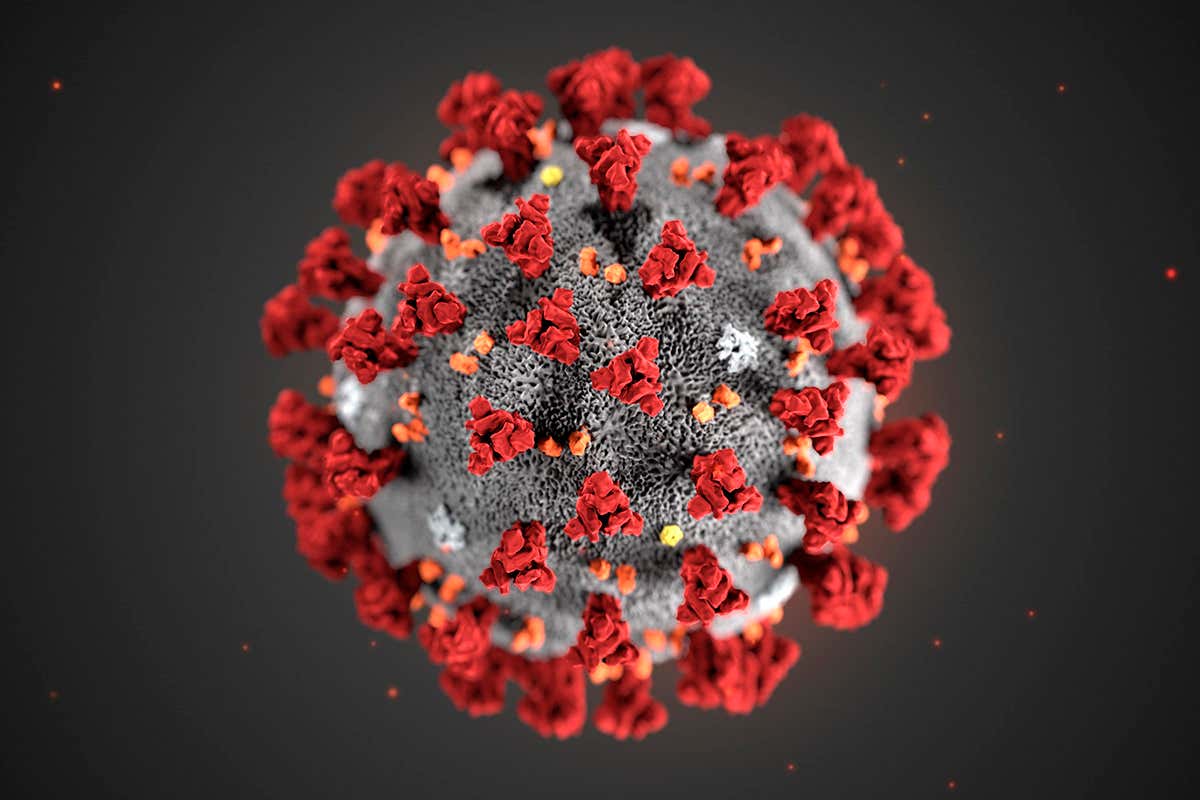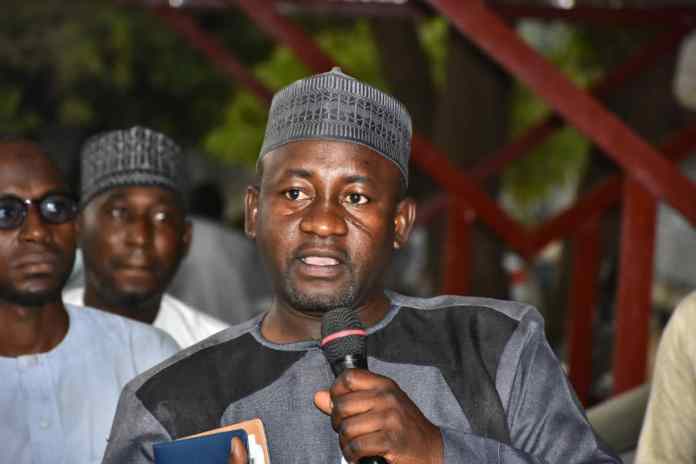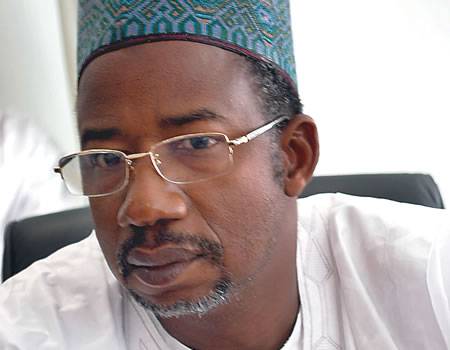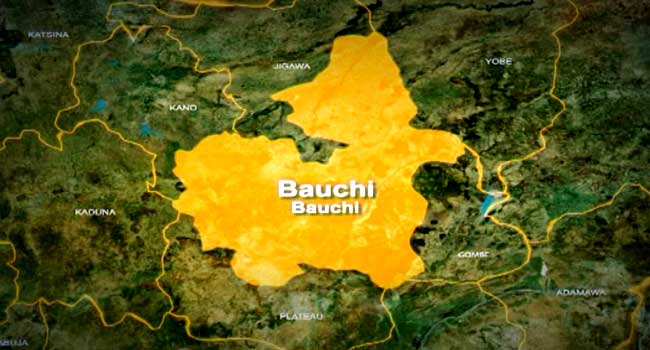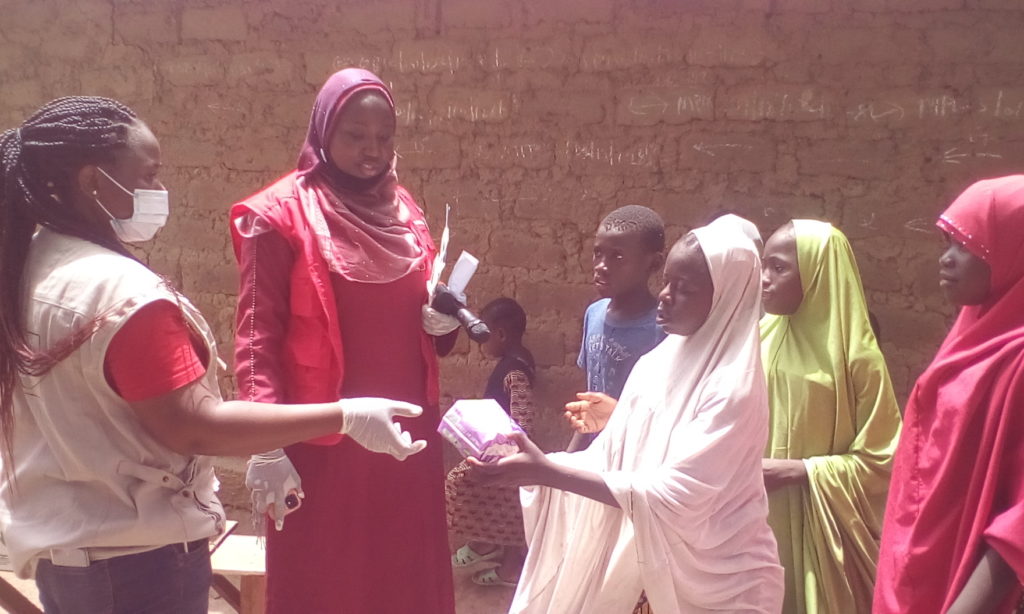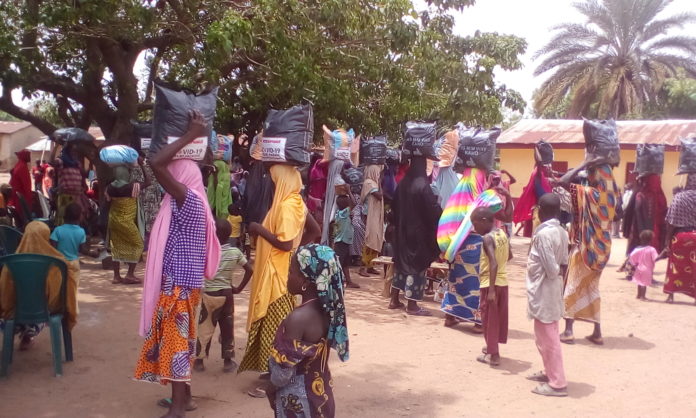In continuation of its enlightening program amidst the coronavirus pandemic, the centre for information technology and development (CITAD) has today , the 6th of May, Â 2020 held its 11th twitter chat with a senior act British council civil society strenthning program in Nigeeria Mrs Hafsat Mustapha.
The twitter chat is part of the Centre for Information Technology and Development efforts in helping the fight against the deadly coronavirus virus in the country which is being held twice every week. In the twitter chat, CITAD uses to invite great personalities from different professions to come and interact with people in the hope of finding solutions to many problems associated with pandemic.
This week the chat focuses on the capacity building of CSOs for a better response to covid 19 Pandemic.
She started the chat by stating that “the Covid-19 pandemic is an unprecedented global emergency, at least in our time, therefore it is expected that institutions will be overwhelmed and under enormous pressure to deliver on protecting lives and delivering services.
Therefore protection of human rights will always be of extreme importance either in emergency or otherwise. CSOS will always have a role to play”
She further explain that ” In this situation, CSOs though may not have had a readiness and response plan in anticipation of the emergency have so far done extremely well to support government on the emergency”
In responding to a question about the capacity Civil Society Organizations need in order to help in the fight against Covid19?
Her response was “for this situation, it is basically the capacity to raise funds and leverage on technology. We have been marginally innovative in that aspect but post covid, I expect that things will change and we have to re evaluate how we work”
Another question raised was On the issue of deportation of Almajaris by some state governors to their states of origins. Constitutionally this is wrong and by implications it helps in spreading the virus to many areas. My question is why do the CSOs’ voice not being heard enough?
Her replied was ” I belive that there are CSOs working on these issues. The challenge in this period is visibility for the work that we do because there are multitude of issues being tackled everyday during this emergency. Also challenge for CSOs to leverage on technology to increase their voic.
During the interaction, the guest took her time to explain the role of civil Society in the fight against Covid19,the challenges face by CSOs and the role of government in supporting civil society to achieving the fight and the role of technology in fighting the pandemic , she also responded to questions asked by the participants.
Below are some of the questions and comments from the chat:
Good afternoon everyone.We want to thank you all for joining us in today’s chat.This is the 11th time @ICTAdvocates are holding Twitter chat with experts and professionals from different fields. It is an intervention to support the fight the #COVID19 pandemic in #Nigeria@YZYau
Today and at this time we are hosting Hafsat Mustapha (@haffymusty05), a social development consultant leading strategic development interventions to strengthen civil society ecosystem and social accountability.@YZYau@a_sabo12@Mairo_Ado@HariraWakili@nissimase @kamalkano
Mustafa Haffysa @haffymusty05 Replying to @ICTAdvocates@YZYau and 5 others Good afternoon and it is my pleasure to be here.Thank you for hosting me.
@ICTAdvocates Hafsat Mustapha (@haffymusty05), is also the Lead country evaluator of Open Government Partnership (OGP) in Nigeria/Senior Consultant on ACT-British Council Civil Society Strenghtening Program in Nigeria.You are welcome to the chat Ma, @YZYau@a_sabo12@ChiromaHope@HariraWakili
@haffymusty05 Replying to @ICTAdvocates @YZYauand 3 others Thank you very much. I hope my contributions will benefit the audience.
@ICTAdvocates Replying to @haffymusty05 @YZYau and 3 othersSure, we are glad you find the time to be here.
@haffymusty05 Replying to @ICTAdvocates @YZYau and 3 others The Covid-19 pandemic is an unprecedented global emergency, at least in our time, therefore it is expected that institutions will be overwhelmed and under enormous pressure to deliver on protecting lives and delivering services.
@ICTAdvocates Different actors are doing different things to make sure the #COVID19 pandemic in #Nigeria is addressed, specifically, what roles are the civil society organizations supposed to play in this time of National tragedy, @haffymusty05 ? @YZYau@a_sabo12@isahcitad@HariraWakili
@haffymusty05 Replying to @haffymusty05 @ICTAdvocates and 4 others In this situation, CSOs though may not have had a readiness and response plan in anticipation of the emergency have so far done extremely well to support government on the emergency.
@haffymusty05 Replying to @ICTAdvocates @YZYau and 3 others Advocacy especially on procurement of emergency relief materials, sensitization, awareness creation, debunking myths and community engagement on behaviour change. It is a long list
@haffymusty05 Replying to @haffymusty05 @ICTAdvocates and 4 others But what is important is that Civil society can better than anyone, relay messages in languages that communities will identify with, monitor perceptions, rumour and disinformation and also create channels to address  behaviour change issues.
@a_sabo12 Replying to @haffymusty05 @ICTAdvocates and 3 others Ma’m, the major issue at hand now is lack of transparency from the committees constituted by both states and FG on Covid19 especially with regard to the donations they receiving, how can CSOs ensure these committees are accountable and transparent in their activities?
Tweet
See new Tweets
Conversation
CITAD
@ICTAdvocates
May 6
Different actors are doing different things to make sure the #COVID19 pandemic in #Nigeria is addressed, specifically, what roles are the civil society organizations supposed to play in this time of National tragedy,
@haffymusty05
?
@YZYau
@a_sabo12
@isahcitad
@HariraWakili
Mustafa Haffysa
@haffymusty05
May 6
Advocacy especially on procurement of emergency relief materials, sensitization, awareness creation, debunking myths and community engagement on behaviour change. It is a long list
Mustafa Haffysa
@haffymusty05
May 6
But what is important is that Civil society can better than anyone, relay messages in languages that communities will identify with, monitor perceptions, rumour and disinformation and also create channels to address behaviour change issues.
@a_sabo12 Ma’m, the major issue at hand now is lack of transparency from the committees constituted by both states and FG on Covid19 especially with regard to the donations they receiving, how can CSOs ensure these committees are accountable and transparent in their activities.
@haffymusty05 Replying to @a_sabo12 @ICTAdvocates and 3 others Also we can’t as CSOs assume lack of transparency without evidence. That is why it is important to call on government to include CSOs in planning and decision making.
@haffymusty05 Replying to @a_sabo12 @ICTAdvocates and 3 others It is dicey, considering that there are restrictions placed through lockdown policies, but CSOs can continue to insist on government opening space for discussions using technology. That has been happening in some quarters, but more CSOs need to push for open information.
@joseph_ochogwu Replying to @haffymusty05 @ICTAdvocates and 4 others The missing link in the Covid19 interventions in Nigeria is the infrastructural deficits and the disconnect between the government and the citizens at all levels. Most CSOs are equally disconnected from the people they are to help.
@haffymusty05 Replying to @joseph_ochogwu @ICTAdvocates and 4 others Exactly, this emergency puts to question the legitimacy of Civil society, emerging from this emergency we should begin to question how we work, what the gaps are and how we can be more representative of our constituencies.
@joseph_ochogwu Replying to @haffymusty05 @ICTAdvocates and 4 others Precisely, the civil society must effectively feel the vacuum created by the state.
@ICTAdvocates Replying to @joseph_ochogwu @haffymusty05 and 4 others Which vacuum sir?
@joseph_ochogwu Replying to @ICTAdvocates @haffymusty05 and 4 others Vacuum of engaging with the people. Nigerian state is elitist and disconnected from the citizen except during elections. CSOs can ill afford to be elitist with the way most NGOs are currently.
@ICTAdvocates@a_sabo12 Replying to @ICTAdvocates @haffymusty05 and 5 others @haffymusty05 what capacity does the Civil Society Organizations need in order to help in the fight against Covid19?
@haffymusty05 Replying to @a_sabo12 @ICTAdvocates and 5 others For this situation, it is basically the capacity to raise funds and leverage on technology. We have been marginally innovative in that aspect but post covid, I expect that things will change and we have to re evaluate how we work.
@a_sabo12 @haffymusty05 let’s look at the issue of deportation of Almajaris by some state governors to their states of origins. Constitutionally this is wrong and by implications it helps in spreading the virus to many areas. My question is why do the CSOs’ voice not being heard enough?
@haffymusty05 Replying to @a_sabo12 @ICTAdvocates and 5 others Civil society will do no less than advocate as usual, but we have seen CS thinking outside the box, creating joint plans, leveraging on each other’s capacity, leveraging on technology etc.
@joseph_ochogwu Replying to @haffymusty05 @ICTAdvocates and 4 others Covid 19 present opportunity for CSOs to work directly with the people to change the disconnection in order to strike a transformative partnership between CSOs and the people.
@a_sabo12 Replying to @haffymusty05 @ICTAdvocates and 3 others @haffymusty05 do you think CSOs need to be co-opted in the PTF committee, if yes, what role do you think they are going to play in curtailing the situation?
@haffymusty05 Replying to @a_sabo12 @ICTAdvocates and 3 others For inclusion, Civil society should be the voice of the people on government’s decision making platforms. What is important for CS inclusion is to take quality issues to the table. They should also monitor government’s responses to the situation and take feedback to govt.
@AkintundeAkanni Replying to @a_sabo12@YZYau and 4 othersSure, all donors are private persons, so CSOs should have been co-opted to reassure us that what govt people have been doing with govt money will not happen this time. #UnitedAgainstCorruption @larryk371@ICTAdvocates@PremiumTimesng@SERAPNigeria@officialEFCC @ICPC_PE@TrackaNG
@a_sabo12 Replying to @haffymusty05@ICTAdvocates and 5 others@haffymusty05 let’s look at the issue of deportation of Almajaris by some state governors to their states of origins. Constitutionally this is wrong and by implications it helps in spreading the virus to many areas. My question is why do the CSOs’ voice not being heard enough?
@haffymusty05 Replying to @a_sabo12 @ICTAdvocates and 5 others I belive that there are CSOs working on these issues. The challenge in this period is visibility for the work that we do because there are multitude of issues being tackled everyday during this emergency. Also challenge for CSOs to leverage on technology to increase their voice .
@a_sabo12 Replying to @haffymusty05 @ICTAdvocates and 5 others You have been talking about the use of technology at this critical time, how important can you say is technology in this fight?
@haffymusty05 Replying to @a_sabo12 @ICTAdvocates and 5 others Technology is the most important. We have been able to get things going only through technology, capacities are being built online, meeting held on various virtual platforms, government organizing and engaging citizen’s through such platforms, information sharing also done on.
@haffymusty05 Replying to @a_sabo12 @ICTAdvocates and 5 others…the platforms. So technology is the future of Civil society engagement. Post- covid, we must re evaluate how we intensify CSO capacity on use of technology to deliver their mandates.
@mukhtars_s Salam, @haffymusty05 There are significant corruption risks during times of crisis. Can u pls shed more light on the roles CSOs play in ensuring funds to tackle the Covid-19 pandemic reach their destination. @ICTAdvocates
@haffymusty05 Replying to @mukhtars_s and @ICTAdvocates Yes agreed. During pandemics there are risks of repression and increased corruption, CS needs to keep emphasising on open and inclusive governance.
@a_sabo12 Replying to @haffymusty05 @ICTAdvocates and @mukhtars_s @haffymusty05 what advice do you have for CS who are fully engaged on physical sensitization in communities most especially looking at how easily people contract or transmit the virus?
@haffymusty05 Replying to @a_sabo12 @ICTAdvocates and @mukhtars_s CSOs should observe all interpersonal safety regulations. Where necessary we should use alternative means of communicating our messages, radio, especially in some areas.
@ICTAdvocates Replying to @haffymusty05 @YZYau and 3 others Does this also involve community and faith-based organizations?
@haffymusty05 Replying to @ICTAdvocates @YZYau and 3 others Yes especially in a country like Nigeria. We may not have given enough attention to CBOs, in terms of building their capacity, but their closeness to and acceptability by communities can never be denied. It would be disastrous to not include them in this campaign.
@joseph_ochogwu More bridge building between NGOs and CBOs is important.
@mukhtars_s Thank.Hajiya @haffymusty05 Pls, what challenges do CSOs facing currently? @ICTAdvocates
@haffymusty05 Replying to @mukhtars_s and @ICTAdvocates We also know as a challenge that CSOs should as a matter of urgency learn how to mainstream inclusion of PWD and vulnerable persons in their plans and decisions. They are most affected by this situation. These are some of d capacity areas with challenge.
@haffymusty05 Replying to @mukhtars_s and @ICTAdvocates Capacity. The utmost being funding and their ability to utilise technology in such emergency situation. Emerging learning from what we know now, means we will have to develop readiness plans ahead of unforseen situations which means we have to move with time and think globally.
@mukhtars_s Replying to @haffymusty05 and @ICTAdvocates I`m really grateful
@ICTAdvocates We would like to at this juncture and on behalf our Executive Director, Engr. @YZYau immensely thank Hafsat Mustapha (@haffymusty05) for the very resourceful discussion, thank you once again and #staysafe. We are also grateful to you all for participating. See you next time.
@haffymusty05 Replying to @ICTAdvocates and @YZYau Thank you for having me and thanks to everyone who took the time to join. For further questions, those who wish to can @my handle.
@ICTAdvocates Replying to @haffymusty05 and @YZYau Thanks for the generosity @haffymusty05. Feel free to ask more questions should you have them, her handle is @haffymusty05, direct your questions to her.
